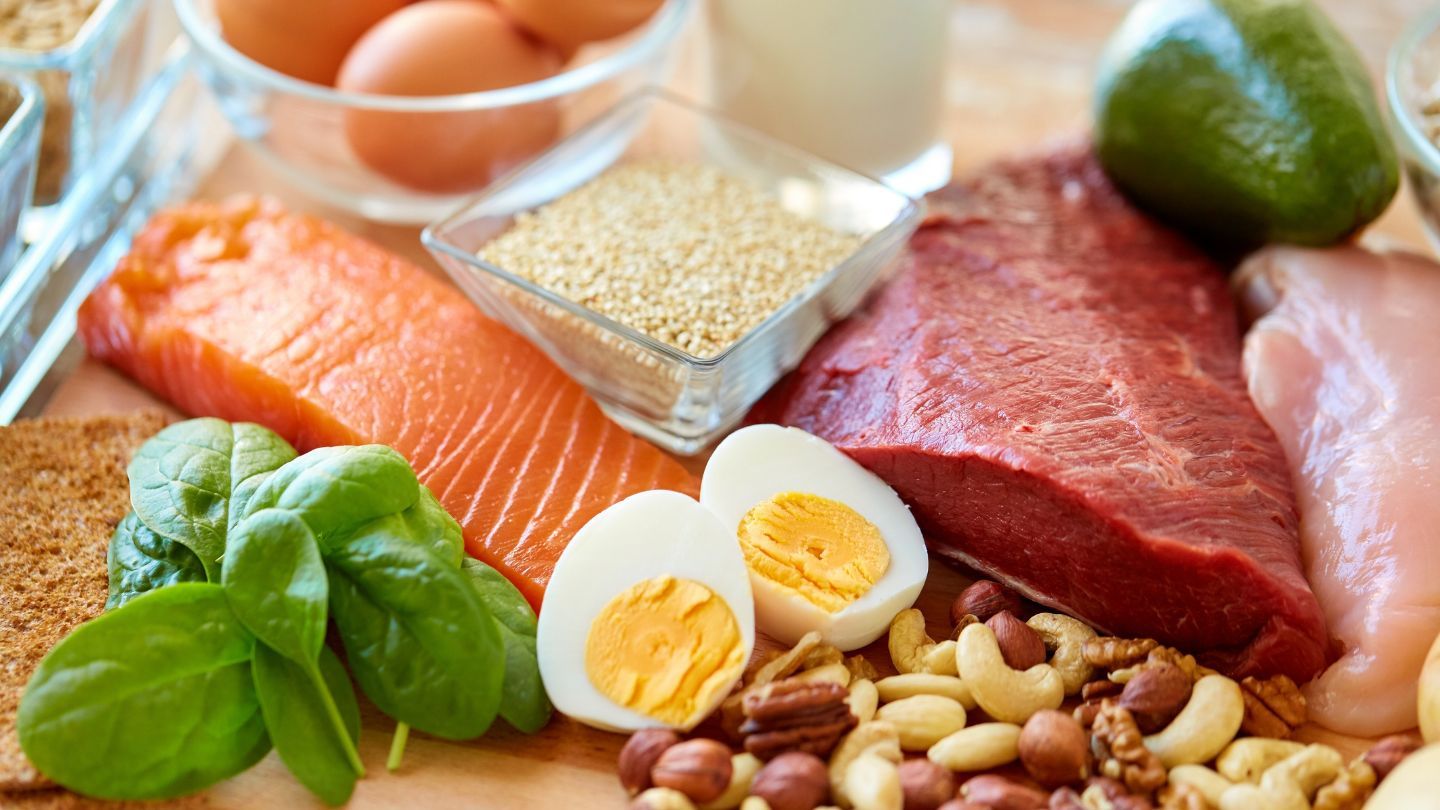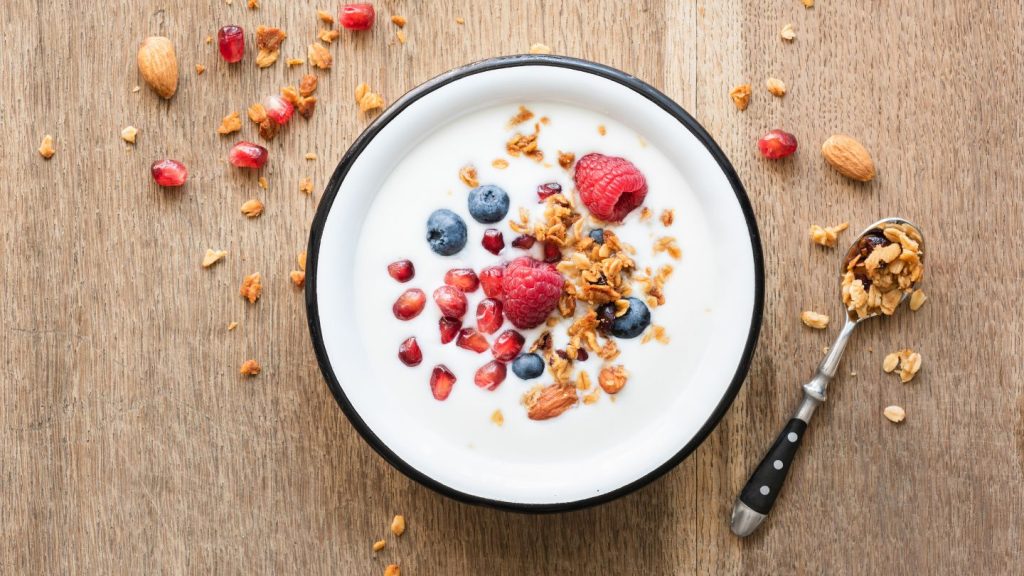
Snack Time: The Best Protein For Bariatric Patients
For bariatric patients, protein isn’t just a dietary component, it’s a cornerstone of recovery and long-term success. After surgery, the body’s ability to absorb nutrients decreases, making it essential to focus on high protein foods for bariatric patients to preserve muscle mass, promote tissue repair, and sustain energy. Protein also supports metabolism, helping patients maintain weight loss and prevent nutritional deficiencies.
After weight loss surgery, understanding why protein is important is crucial for recovery and long-term success. Protein supports healing, maintains muscle mass, and promotes satiety, helping patients avoid unnecessary snacking. It also aids metabolism and ensures sustained energy levels while the body adapts to reduced calorie intake.
Because the stomach’s capacity is significantly reduced after surgery, each bite must count. Small, frequent meals packed with protein ensure that patients receive adequate nutrition despite limited intake. This makes protein for bariatric patients a daily, non-negotiable priority in post-surgical life.
Ideal Protein Intake After Bariatric Surgery
Understanding how much protein to consume daily is vital for recovery. Most patients need between 60 and 80 grams of protein each day, although this can vary depending on body weight, surgery type, and activity level.
After surgery, protein intake should begin with liquids, progressing to soft foods and solid meals as healing advances. The best protein after bariatric surgery should be lean, low in fat, and easy to digest. Timing also matters, spreading protein across meals and snacks helps optimize absorption and prevents fatigue.
Hydration plays a supporting role in this process. Patients should avoid drinking fluids immediately before or after protein-based meals to prevent early satiety and ensure sufficient nutrient intake. Implementing essential tips for bariatric surgery recovery can make a significant difference. Prioritize hydration, follow the recommended dietary stages, rest adequately, and begin light movement when cleared by your surgeon. Regular follow-ups and adherence to nutritional guidelines ensure a smoother transition and long-term success.
Smart Protein Snacks for Bariatric Patients

Snacking becomes a strategic tool for recovery. When chosen wisely, snacks bridge the gap between meals and keep energy levels steady. The following high protein bariatric snacks are suitable for various post-surgery phases, offering convenience and nutrition in every bite.
Quick and Portable Protein Options
Compact, portable snacks are perfect for busy days or when you need a quick boost. Hard-boiled eggs deliver around 6 grams of protein each and are gentle on the stomach. Turkey roll-ups with low-fat cheese provide lean protein without unnecessary carbs or fats. Tuna pouches or salmon packs are rich in omega-3s and easy to carry.
These snacks can be stored without refrigeration for short periods, making them ideal for patients with active schedules. Including a few of these options from the list of high protein foods for bariatric patients ensures that you can meet your nutritional needs anywhere.
Dairy-Based Power Snacks
Dairy products are among the best protein for bariatric patients, thanks to their digestibility and nutrient density. Greek yogurt is a standout choice, offering 10–15 grams of protein per serving along with calcium and probiotics for gut health. Cottage cheese is another excellent pick, low-fat varieties are smooth, satisfying, and rich in essential amino acids.
Pairing yogurt or cottage cheese with a small serving of fruit or unsalted nuts adds flavor and fiber while keeping sugar intake under control. Cheese sticks made from part-skim mozzarella also offer a quick 6–8 grams of protein without excess fat.
Plant-Based Protein Choices
For vegetarian or lactose-sensitive patients, plant-based proteins provide a great alternative. Tofu cubes, edamame, and roasted chickpeas offer 8–12 grams of protein per serving, depending on preparation. These are excellent high protein foods for bariatric patients who prefer non-meat options.
Soy nuts and lentil crisps can also serve as satisfying snacks while contributing to heart health and improved digestion. Patients should choose lightly seasoned or unsalted versions to avoid sodium overload.
Smooth and Sippable Options
Liquids are especially useful in early recovery stages or for patients who struggle with solid foods. Protein shakes remain one of the best protein after bariatric surgery options, convenient, customizable, and easy to digest.
When selecting shakes, look for formulations with at least 20 grams of protein per serving and minimal sugar. Fruit smoothies made with Greek yogurt or protein powder can deliver balanced nutrition while satisfying cravings. Fortified milk drinks enriched with whey or casein proteins are also effective for maintaining steady protein intake throughout the day.
Protein Safety and Portion Control
Even though protein is essential, balance remains key. Overconsumption can lead to dehydration or kidney strain, especially without adequate fluid intake. Portion control ensures that your digestive system adapts comfortably while maximizing nutrient absorption.
Patients should follow their dietitian’s guidelines during each phase of recovery:
- Liquid stage: Use sugar-free protein shakes, broths, and clear protein waters.
- Pureed stage: Introduce blended lean meats, soft tofu, and low-fat dairy.
- Soft stage: Transition to eggs, moist poultry, and cooked seafood.
- Solid stage: Incorporate dense sources like lean beef, chicken, and beans.
Knowing what foods to avoid after bariatric surgery helps prevent complications. Sugary, fried, and carbonated foods can irritate the stomach, slow recovery, and cause discomfort. Avoiding these not only protects your surgical results but also helps establish healthier, more sustainable eating habits.
When reviewing the list of high protein foods for bariatric patients, prioritize low-fat, low-sugar options and avoid fried or processed products. Label reading is essential, aim for a protein-to-sugar ratio of at least 10:1 for optimal nutrition.
Lifestyle Integration: Making Protein a Habit

Sustaining adequate protein intake isn’t just about eating the right foods, it’s about building consistency. Creating a meal plan that includes two to three high protein bariatric snacks daily can help patients meet their goals without feeling deprived.
Batch-prepping snacks like boiled eggs, portioned nuts, or yogurt parfaits can simplify daily routines. Keeping a variety of high protein foods for bariatric patients on hand also prevents last-minute poor food choices.
Incorporating both animal and plant-based sources ensures diversity and balance. Patients can rotate between lean meats, dairy, legumes, and soy products for complete amino acid coverage. Finally, when comparing bariatric surgery vs weight loss injections, each option serves different needs. Injections may support moderate weight loss with fewer risks, while surgery provides more transformative and lasting results for those with severe obesity. The right choice depends on medical history, goals, and commitment to lifestyle changes.
Final Thoughts
A balanced protein strategy forms the foundation of recovery and lasting results after weight loss surgery. Prioritizing the right high protein foods for bariatric patients promotes healing, sustains energy, supports muscle maintenance, and prevents nutritional deficiencies. By integrating structured meals and smart snacking, patients can achieve consistent nourishment while maintaining their weight loss goals long after surgery.
At Ascension Saint Agnes, patients seeking bariatric surgery in Baltimore receive comprehensive nutritional care designed for every stage of recovery. The team provides expert guidance on dietary planning, ensuring each patient understands how to choose and maintain the best protein after bariatric surgery to support long-term health and success. Visit our website to explore their complete range of bariatric care services.
Frequently Asked Questions
How soon after surgery can I start eating solid protein?
Typically within 4–6 weeks, depending on your surgeon’s guidance. Always start with soft, moist proteins before progressing to dense solids.
Are protein shakes necessary long-term?
They’re beneficial, especially when appetite is low. However, over time, whole-food sources should become the foundation of your diet.
What are the best snacks for bariatric patients on the go?
Portable items like cheese sticks, edamame, and protein bars with low sugar content are excellent options.
Can plant-based eaters meet protein goals easily?
Yes, with a balanced mix of tofu, lentils, soy, and fortified shakes, vegetarians can achieve adequate intake.